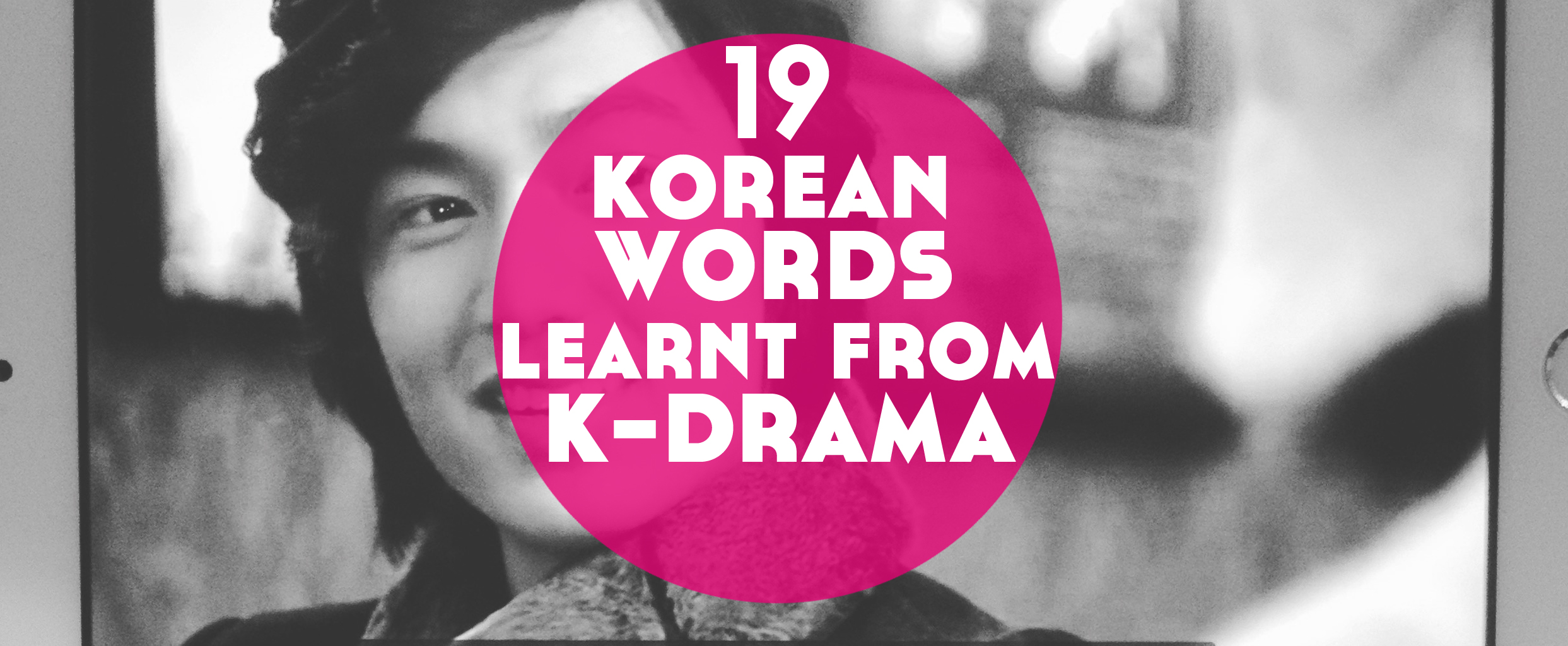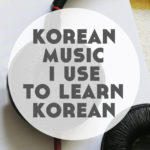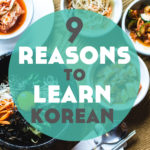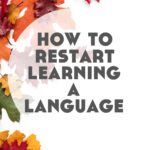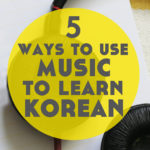April 25th, 2016
19 Korean Words Learnt From K-Drama Boys Over Flowers
When I started learning Korean, I knew a little Hangeul, I’d eaten a bibambap, and I’d heard Gangnam Style probably close to a million times. But I’d never seen a K-drama. Dun duh duh!
It wasn’t long before I changed that when I started watching Boys Over Flowers. I’ve now finished the show and feel pretty happy with what I learnt about Korean and Korea from watching.
In this post, I’m going to share with you Korean words learnt from watching Boys Over Flowers. Enjoy!
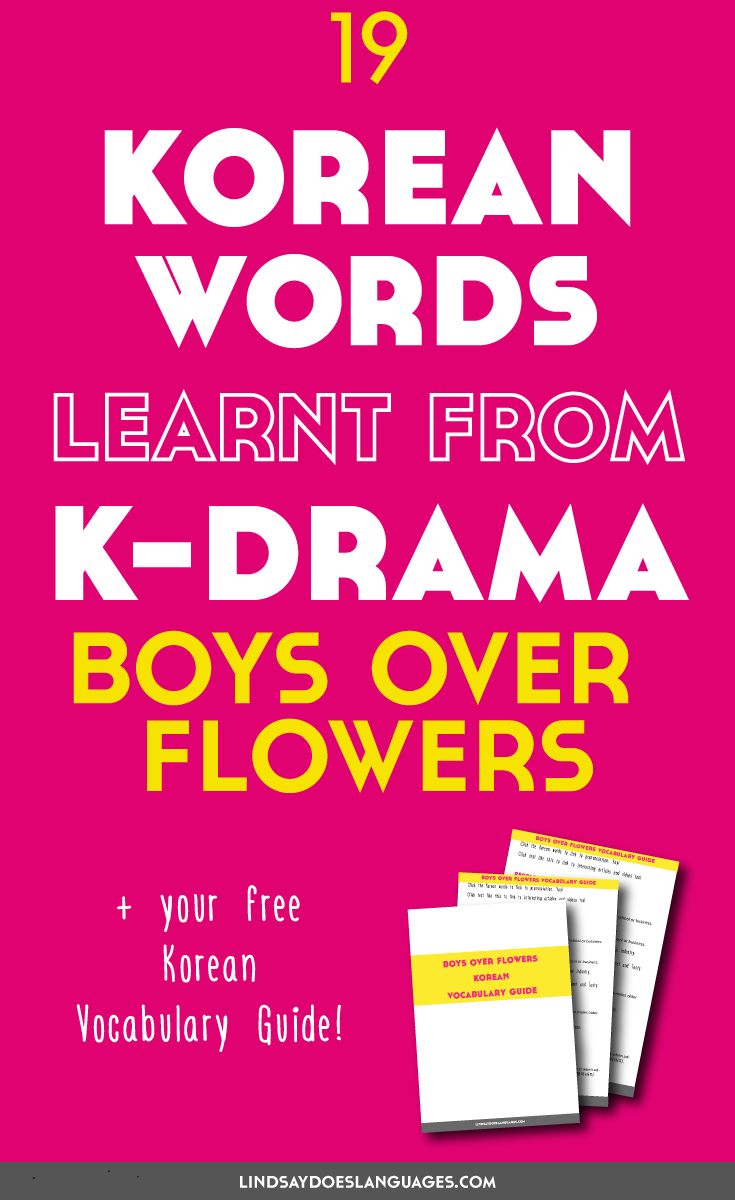
How did I use k-drama to help me learn Korean?
Most of my time spent watching Boys Over Flowers, I was also doing something else – washing up, cleaning etc – and although I tended to split most episodes over a couple of days, I often found myself with 10 minutes or so left before the end of an episode, which just isn’t worth saving for the next day!
So I would make the most of this time and sit down with my trusty notebook in hand ready to jot down any words or phrases I could decipher from the audio and subtitles combo.
The Advantages of this
This was great because I soon began to understand or recognise more and more as time went on. It wasn’t long before sounds I recognised became words I recognised. Yay!
Because I was making notes, I also have a resource to look back on and see how much I’ve studied and how far I’ve progressed. Also a good point.
The disadvantages of this
Some things I wrote down still don’t have a translation next to them. There were times when I heard something, identified the sounds of the words being said, wrote it down, but missed the subtitle or didn’t find a translation that made sense after.
But, really, the whole point of watching the show and using it as a solid resource from time to time wasn’t to learn Korean in super fast time and understand every word of episode 25. So I’m totally happy with what I have done and look forward to finding another K-drama to support my studies.
The words
Questions
뭐 – mwo? – what?
This one was really common and one of the first words I began to pick up on regularly throughout the series and to be honest, to begin with, it sounded more like ‘bul’.
‘Mwo?’ means ‘what?’ reeeealllly informally.
I first heard this as an exclamation of shock or surprise at what had been said by someone else, then I started to hear it at the start of longer questions too.
왜? – weh? – why?
This one I like because it’s similar to the English! Completely unrelated I’m sure, but a little familiarity always helps with remembering new words.
준비? – joonbi? – ready?
Another example of a really informal way to ask a question that would be slightly longer in other situations.
‘Are you ready?’ in its fuller form would be ‘준비 됐어요?’
그래? – kure? – really?
The great thing about a lot of the short-form questions I heard on Boys Over Flowers is that they can be used really easily in other sentences by taking away the questioning tone.
This explains really simply how that works for 그래?
There’s even another way to say ‘really’? – 진짜?
알았어? – araso? – you got that?/alright?
I like this one. I feel like it’s super casual, not the kind of thing you normally find in your standard textbook.
누구 랑? – duguro? – who with?
If I remember right, this was said in a moment of jealousy…so there’s quite a few places in the series I could have added this to my list!
People
선배 – Sunbae and 후배 – hoobae
One thing it didn’t take me long to notice was the word ‘sunbae’. The lead female characters often referred to the older males in the F4 as ‘sunbae’.
But it would be translated on the subtitles as their names?! I was confused.
I did a little research and found that ‘sunbae’ is a term used to address people who are not necessarily older than you, but also wiser and/or more advanced than you in a certain situation.
With honorifics playing a big role in Korean, I was really intrigued by this.
It turns out there’s also an opposite word, ‘hoobae’, used by people in the wiser or older position to address those younger or less experienced than them.
However, the interesting thing here is what happens when you are more experienced in an area but younger than someone else? How do you address each other? This fascinating article looks at what happened when a K-pop star made a bit of a sunbae/hoobae slip-up.
오빠 – Oppa and (the drastically different in meaning) 엄마 – omma
Ok, so I’d seen the word ‘oppa’ a few times on Pinterest images and the like sharing essential K-drama words. But it’s not until you actually hear stuff that it begins to make sense and sink in.
‘Oppa’ literally means ‘the older brother of a female’, but it’s used so much wider than that. Firstly, it’s normally only used almost exclusively by females.
Secondly, even if a guy isn’t your actual brother but is older than you (normally by a year or more) than you (if you’re female!) can call them ‘oppa’. At least that’s how I understand it. The intricacies of this seem pretty complex. There’s a great guide to some common Korean terms of address here.
So what about ‘omma’?
Here’s the thing: ‘oppa’ and ‘omma’ have nothing to do with one another.
But I wanted to include it on this list because when I started hearing ‘oppa’ AND ‘omma’, I figured “well those words must have something to do with one another!” Totally wrong!
‘Omma’ simply means ‘mum’.
할아버지 – harabogi – grandfather
So far it feels like this blog post could be called “Terms of Address in Korea”! But hearing so many different ways people addressed each other in Boys Over Flowers really showed me how important this is in Korean.
Even though Ji Hoo’s grandfather is not Jan Di’s, she still addresses him as ‘harabogi’ often.
I love this! I mean, what can you call an elderly gentlemen in English other than ‘sir’, which sounds waaay too formal? If I called an elderly man ‘granddad’ if he wasn’t my granddad, that would be really offensive! I love that there’s a way to do this in Korean and be respectful.
Expressions
가자 – gaja – let’s go
Antoher example of one that just kept coming up and I soon began hearing it again and again and again.
가지 마 – kajema – don’t go
If they’re not going places together, they’re apparently begging each other not to go without them.
네 or 예 – dae or yae – yes
It’s weird as it should probably one of the first words you learn in a language, but it took me a long time before I realised I didn’t know the word for yes in Korean!
I think the reason for that is I didn’t look this word up to begin with so it’s one that I learnt completely from Boys Over Flowers. However, the thing is, sometimes it sounds like ‘dae’ and sometimes it sounds more like ‘ne’ and sometimes it even sounds like ‘ye’. Phew!
아니 – ani – no
I can’t remember if I heard this first on Boys Over Flowers or looked it up after realising I’d only just learnt the word ‘yes’!
빨리 or 빨리빨리 – pali or pali pali – hurry up
When I was checking my notes to put this list together, I originally had ‘bae yu’ written down. When I researched to confirm, I soon found that wasn’t quite right!
In fact, it turns out that 빨리빨리 is actually a pretty significant part of Korean culture. Who knows what a K-drama can teach you?!
그 좋은 – gu joh-eun – that’s good
Always a handy expression!
걱정 말아 – geogjeong mala – don’t worry
Another really useful one that I began to notice more and more.
축하해! – chughahae! – congratulations
After a little research, I also found out that the same expression is used in ‘happy birthday’, at least in full in the informal form: 생일 축하해. Awesome.

